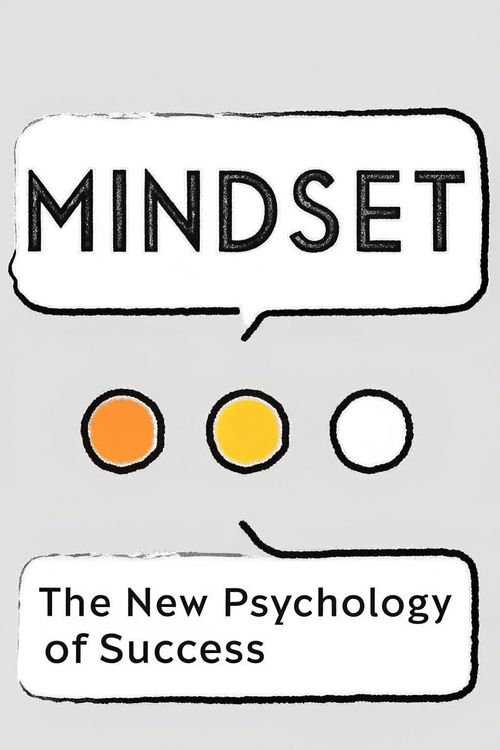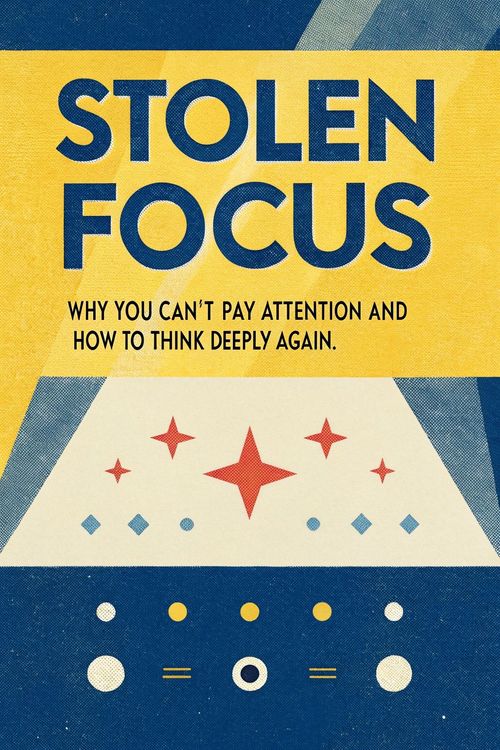
Teamwork Triumphs: Build a Winning Culture
Podcast by Beta You with Alex and Michelle
Lessons From Elite Military Units for Creating and Sustaining High Performance Leaders and Teams
Introduction
Part 1
Alex: Hey everyone, welcome to the show! Today, we're diving deep into what it takes to build championship cultures—those teams that not only achieve success but really flourish, even when the pressure’s on. Michelle: Yeah, Alex, because let’s be real, whether you’re in a corporate office, on a sports team, or just navigating life, we’ve all been on teams that just can’t seem to click. It’s like watching a three-legged dog trying to win a race, right? Alex: Totally, Michelle. And the thing is, truly great teams don't just magically appear. They're deliberately built on principles like leadership, clear accountability, open communication, and most importantly, a shared sense of purpose. That’s “really” what we're exploring today—practical strategies for creating those unstoppable teams. Michelle: Exactly. I mean, this isn't just another abstract theory session. It's filled with insights drawn from real-world experiences, from military ops to competitive sports and high-pressure business scenarios. Alex: Right. The book offers actionable frameworks, such as the One More™ philosophy for overcoming obstacles and techniques for clear, closed-loop communication to ensure everyone’s aligned. It's a guide to striking that delicate balance between achieving our objectives and supporting our team members. Michelle: So, here’s what we’re planning to break down today. First, we will explore the fundamental elements of a high-performance culture. How do you select the right individuals and set the stage for success from the beginning? Alex: Then, we’re going to be discussing accountability – how constructive feedback improves performance and builds trust. Michelle: And lastly, we'll examine leadership. How do you balance the demands of the mission with the well-being of your team? It's like leading an orchestra, where every musician is essential, and the harmony they create is what truly matters. Alex: Exactly. It’s all connected, and every aspect is essential for achieving teamwork and, ultimately, victory. So, are you ready to jump in?
Championship Culture and Team Excellence
Part 2
Alex: Okay, Michelle, let’s dive into what a championship culture really is. It's not just about a team of superstars; it’s about creating an environment where core values actually influence how people behave– especially when the pressure's on. It’s about turning ideas like trust, accountability, and resilience into tangible, everyday actions. Michelle: Exactly, and that word "practice" is key, isn’t it? Values are just empty words if they're only on posters or in presentations. They have to be genuine, lived, and absolutely non-negotiable, no matter what. It makes you wonder, though, Alex, how many teams “really” stick to their core values when push comes to shove? Alex: Probably far fewer than you'd hope. But the story of Captain Cory Ross really highlights the power of deeply held values. Picture this: Afghanistan, high-stakes, constant threats. What sustained Captain Ross’s team wasn't just tactics or resources; it was their unwavering commitment to shared values like trust and solidarity. Those moments of calm, even in chaos, were possible because everyone knew they could rely on each other. Michelle: Yeah, what struck me about that example was how their values transformed fear into something productive. But, isn’t it easy to dismiss that as a unique case? Someone might say, "That's great for a special forces team in a war zone, but in my office, we're not facing life-or-death situations." How do we make this relevant for the rest of us? Alex: Good question, Michelle. The connection lies in building that level of trust and clarity, regardless of the stakes. Whether it's in combat or during a product launch, teams need to lean on those shared principles, especially when things get tough. If a company prioritizes "excellence," their daily decisions—meeting deadlines, maintaining quality—should all reflect that. It really is universal. Michelle: Okay, I see the parallel. The next challenge, though: how do you recruit people who not only understand the values but actually embody them? Raw talent alone isn't enough. Alex: Absolutely, Michelle, that's where the overlap between skills and values comes in. Think of it as a Venn diagram. One circle is talent, the other is alignment with the team's core values. The sweet spot in the middle? That's who you want. This applies everywhere, by the way. Even in college sports, top programs are now recruiting athletes who demonstrate discipline and accountability, not just chasing the highest stats. Michelle: Right, so instead of just grabbing the fastest player, you go for the one who's fast “and” trains consistently, supports the team, and steps up when it matters. It's that classic “hard work beats talent when talent doesn’t work hard” idea, right? Alex: Exactly! And leaders are essential to reinforcing that. When a leader models excellence, like Ray Lipsky did as a Navy football player, it sets the standard. Lipsky proved that leadership isn't just about giving orders; it's about living every value you expect from the team. If accountability is the standard, he exemplified it. That inspires others to follow suit. Michelle: Agreed, actions speak louder than words. But let's push back a little here—it's easy to “say”, "Look for hardworking, values-aligned people," but recruitment isn't an exact science. How do you “really know” you're making the right choices? Alex: It’s a fair challenge. This is where cultural fit becomes vital in recruitment. Bring team members into the interview process. This helps you see how a candidate interacts with potential teammates. It’s more than just ticking boxes on a resume—it’s seeing how they handle real-time interactions. Are they collaborative? Do they respect the team's mission? Michelle: I like that. It's like having your team act as a first line of defense to protect the company culture. Skip this step, and you risk letting in someone who might be incredibly talented but a complete culture killer, right? And we all know one bad apple can spoil the bunch. Alex: Exactly, and it goes beyond recruitment. It’s about setting up systems that consistently reinforce the culture. Using structured goals like the S.M.A.R.T. framework— specific, measurable, attainable, relevant, and time-bound goals— helps keep everyone on the same page. When everyone is accountable—and celebrated—for both individual and team milestones, it’s harder for anyone to lose sight of the bigger picture. Michelle: The SMART framework is great because it turns lofty ideas into something actionable. Right, "hit annual sales of $1 million" doesn't mean a thing if nobody has a plan. But saying, "Each team member must close X deals per week"? That breaks it down, makes it achievable, and builds momentum. Alex: Exactly, and it keeps morale high. When individuals see their small wins contributing to larger successes, it reignites their motivation. It’s about creating that continuous cycle of accountability and celebration, keeping everyone striving forward without losing sight of the bigger picture. Michelle: I get it. So, a championship culture relies on linking values to actions, recruiting people who live those values, and keeping everyone focused via structured, achievable goals. Sounds simple enough on paper, but in reality, it takes relentless effort, doesn't it? Alex: Precisely! It isn’t a "set it and forget it" kind of process—it's intentional, daily work. But the result is more than worth it: cohesive, resilient teams that not only meet expectations, but consistently exceed them.
The Importance of Accountability
Part 3
Alex: So, we're transitioning from establishing a championship culture to talking about how essential accountability is in keeping that culture alive, right? And let's be real, accountability is where the real work begins. It’s not just policing people; it’s about ensuring those high standards never slip, no matter what. Today, we’re going to unpack the tricky balance between being a friend and holding people accountable, learn from huge mistakes like Operation Ricochet, and then give leaders some actionable ways to build resilience and trust through accountability. Ready to get into it, Michelle? Michelle: Absolutely, Alex. But, you know, this whole "accountability is kindness" thing... I'm a little skeptical. There's nothing kind about pointing out someone's screw-up, especially if it's a friend. But I'm willing to be convinced. Alex: I get that, Michelle, and it's a very common way to feel. People often see accountability and friendship as opposites, but they’re really two sides of the same coin, actually. Real kindness isn’t about letting someone off the hook to spare their feelings—it’s about helping them grow in the long run. So, let’s start by looking at why accountability often fails, particularly in teams where friendship is prioritized too much. Michelle: Right, the whole "let's not make waves" idea. I see it. People avoid difficult conversations because they don’t want to be the bearer of bad news. But the problem is, when you choose being comfortable over being honest, you’re not just avoiding conflict—you’re actually undermining the team. Is that where this Operation Ricochet story comes in? Alex: Exactly. Operation Ricochet is a perfect example of what not to do. It was a military mission in Iraq, and it went completely wrong because being friendly was seen as more important than being accountable. Imagine two elite teams, Team 1 and Team 3, both super successful. They have to break into a fortified location. Everyone just assumes, "Hey, these guys know what they're doing, no need to check the basics." As a result, essential safety and procedural information wasn’t shared. Complacency set in, and when they went into action, a breacher detonated two charges incorrectly. Michelle: Hold on—two charges? How does that even happen? Shouldn't there be multiple checks and balances in these kinds of situations? Alex: Normally, yes, there should be. But in this case, because everyone was so familiar with each other and standards were relaxed, they had a false sense of security. This breacher didn’t get the supervision he needed, and when the charges exploded, it caused injuries and chaos. Team cohesion fell apart immediately, and the entire mission was compromised. It’s a very scary example of how a lack of accountability can start small but become overwhelmingly destructive. Michelle: So basically, everyone’s being all chummy and assuming someone else has everything under control, but then you wind up with injuries, a failed mission, and a huge loss of trust. It's like in sports—the star player skips practice, and nobody wants to hold them accountable because they’re the star. But when game day arrives, the whole team suffers because the standard wasn't enforced. Alex: Exactly. And the consequences of Operation Ricochet weren’t just physical—they were emotional and psychological, too. Trust, which is fundamental to any successful team, was shattered. Jamey, one of the Marines involved, found himself in a mess of confusion and mismanagement, none of which he caused but all of which he was affected by. That’s why accountability is so crucial—it’s not just about avoiding immediate problems; it’s about maintaining the team’s integrity in the long term. Michelle: Okay, so neglecting accountability has consequences—that's clear. But you mentioned earlier that accountability can be a form of kindness. How do you reconcile that with the tough love we're talking about here? Because it still sounds like being the bad guy. Alex: That's a great question, and it's where Eric Kapitulik’s idea becomes really helpful. He talks about the difference between being superficially nice and being truly kind. Being nice is avoiding conflict to keep everyone comfortable. Being kind, on the other hand, is having that difficult conversation because you genuinely care about someone’s growth and the team’s success. It’s short-term discomfort for long-term gain, right? Michelle: Alright, but—and you know I like to play devil's advocate—how do you ensure that message resonates? Because there’s a very thin line between constructive feedback and criticism that feels like a personal attack. If your delivery isn’t good, it could backfire significantly. Alex: Exactly, which is why delivery is so important. There are a few things leaders can do. First, focus on the behavior, not the person. So, instead of saying, “You’re careless,” you could say something like, “I know you can do this, but here’s how we need to tighten this up for next time.” Second, stay calm. Emotions can amplify tension, so keeping your tone composed makes the feedback feel more constructive and less confrontational. Michelle: And you know what? I like the idea of also celebrating successes. If your team only hears from you when things go wrong, they’re going to switch off. But if accountability is part of a larger cycle that includes recognizing accomplishments, it’s easier to accept. It builds that trust, doesn't it? Alex: Absolutely. When you combine accountability with consistent recognition, you make feedback part of the team’s culture. And this goes beyond just one-on-one conversations. It involves building systems and habits that integrate accountability into the team’s everyday routines. Think about something simple, like regular debriefs. Michelle: Like after-action reviews in the military, right? Where you analyze what went well, what didn’t, and what to improve next time. It makes the feedback loop normal. There's no shame, no discomfort—just a mutual commitment to improvement. Alex: Exactly. And for leaders, it means leading by example, being accountable themselves. Colonel Robert Coates did this incredibly well. He created a culture where accountability wasn’t just top-down—it was peer-to-peer. Everyone felt empowered to uphold the standards, not just follow orders. That kind of participation makes standards stick because everyone feels responsible for them. Michelle: And when everyone’s involved, it shifts from being about blaming someone to being about shared responsibility. That’s how you foster trust, right? Because the entire team knows they’re all working toward the same objective, and no one is carrying the weight alone. Alex: Exactly, Michelle. Accountability improves performance and strengthens relationships. It’s not about being mean—it’s about caring enough to encourage teammates to be their best. And when it’s done consistently and with empathy, it transforms teams into strong, high-performing units that can handle anything.
Leadership and Team Dynamics
Part 4
Alex: So, with accountability setting the stage for team dynamics, let's dive into how leadership and communication really solidify things. Leadership, Michelle, it's such a complex idea, isn't it? Basically, it's about influence and knowing what's going on around you. You've got to find that sweet spot between getting the mission done and taking care of your team. Today, we’re going to see how that plays out, especially in tough situations like the Battle of Najaf, and how leaders like Mac MacDonald made choices that lifted up their teams and kept them safe. Michelle: Right, that balance between the mission and the people, that's the tough part, isn't it? Leadership being about more than just shouting orders, but about actually influencing and inspiring people, that's when it gets interesting. So Alex, what does effective leadership actually look like? Is it just about being the loudest person, or is there something more to it? Alex: Exactly, Michelle. Leadership is more than just having authority or a title. It's about setting the tone and bringing clarity when things are chaotic. John Maxwell describes leadership as influence. Basically, it's the ability to get people moving towards a common goal without just relying on force or hierarchy. Michelle: Influence, okay. But where does that come from? Is it all charisma, or do effective leaders need to develop specific traits? Alex: Well, a lot of it comes from being aware of the situation and being emotionally resilient, Michelle. A good leader knows how to read the room, adapt when things change, and stay grounded, no matter what's happening. Leaders show the team what's important by what they focus on and reward. By highlighting ethical behavior or celebrating teamwork, they build a trusting culture where everyone's on the same page. Michelle: So, if I'm hearing you right, leaders aren't just these isolated beacons of inspiration. They're also translators. They translate what's important to the team, especially when things get intense. Alex: Exactly. And when we talk about intense, nothing highlights leadership like combat. Have you ever heard about the Battle of Najaf? It's one of those situations where leadership in action teaches you lessons you just can’t forget. Michelle: Najaf sounds familiar, but fill me in. What made it such a great example of leadership in action? Alex: It's a pretty incredible story, Michelle. The Battle of Najaf took place in Iraq in the summer of 2004. U.S. Marine Jake "Mac" MacDonald faced a situation where his team was not only exhausted but also dealing with constant attacks and political instability. His job was to fight insurgents while also helping local Iraqi troops stand on their own, talk about juggling priorities. Michelle: So, this wasn't exactly a "let's take five and regroup" kind of scenario. Alex: Exactly! The stakes were incredibly high. At one point, there was a direct attack on a police station. His team was exhausted, morale was low, and Mac could see the hesitation in his Marines. Instead of letting that hesitation take over, he knew he had to act quickly. He commanded, "Mount up!" Just those two words snapped the team out of it and got them moving. Michelle: Two words. Not some drawn-out motivational speech, just decisive leadership in its purest form. That's the kind of clarity people need when everything's falling apart. Alex: Exactly. And once they headed into the chaos, Mac said it sounded like “popcorn bursting” with gunfire, the leadership dynamic shifted again. It wasn't just about giving orders anymore. Mac used his situational awareness to assess what was happening moment by moment while keeping his team together and focused. Michelle: So, here's what I'm getting out of this. It sounds like Mac's leadership wasn't just about reacting but also about managing his team's emotions, right? You've got exhaustion, fear, and probably just a general sense of chaos. How do you even keep people together in that kind of environment? Alex: That's a great point, Michelle. Emotional resilience is key here. Mac didn't just act decisively; he also showed confidence. His actions told his team, "I've got this, and you do too." That emotional stability spread through the Marines, refocusing them on the mission instead of the chaos. Michelle: Right, but let’s not forget how important the fundamentals are in situations like that. Even with all the emotional strength in the world, things can quickly go south if you don’t handle the details, correct? Alex: Absolutely. Leadership that thrives under pressure also pays close attention to preparation. Something as simple as checking equipment before every operation, it's not just an option, it's essential. It’s about building systems that prevent small mistakes from turning into huge problems. Michelle: And it's the same in any field, right? Look at sports. Eric Spoelstra from the Miami Heat is known for focusing on how players pass the ball in practice as much as how they perform in games. Those small details add up to success. Alex: Exactly. Whether it's Spoelstra coaching basketball or Mac leading Marines, the idea is the same. It's about building excellence into the team's culture, so it becomes automatic, even when things are far from ideal. Michelle: Okay, fair enough. But let me ask you this: When the mission feels like it’s wearing everyone down, how do leaders strike a balance between pushing their teams to achieve important goals and making sure they don't completely crack under the pressure? Alex: Oh, that's the question every leader struggles with, Michelle. It's about realizing that sometimes, the tough choices might not be popular at the moment but are needed for the long-term well-being of the team. Michelle: Like what? Give me a for instance. Alex: Picture this: a grueling night mission along the Iraq border. Mac's Marines were exhausted, physically and mentally. They'd been walking through smoke-filled areas in full protective gear, expecting to fight at any moment. Just when they had a chance to rest, Captain Gil Juarez gave an unexpected order: another patrol, and in ten minutes. Michelle: Let me guess, that wasn’t exactly met with cheers of joy. Alex: Not at all. But Juarez was acting on a leadership principle. Keeping the Marines active and alert was about more than just the immediate discomfort. He knew complacency was the real danger and made a decision that would keep them vigilant and alive. Michelle: So it’s that big-picture thinking making decisions that might not be appreciated today but protect the team tomorrow. Alex: Exactly, Michelle. And what's interesting is that Mac, even though he was frustrated at the time, eventually understood the importance of that decision. That's leadership that prepares teams for resilience while still keeping the mission as the top priority. Michelle: And that, Alex, seems to be the heart of leadership because it's about being willing to carry those unglamorous decisions while still keeping the team together. Leadership really is an art, isn't it? Alex: It is, Michelle. Leadership isn't about being perfect. It's about influence, vision, and being able to adapt, even when every choice feels incredibly difficult. And that's what makes it the foundation of any successful, dynamic team.
Conclusion
Part 5
Alex: Okay, so to recap, we've really gone deep into the foundations of a championship culture. We're talking about nailing down those core values, making sure you bring in people who genuinely vibe with them, and setting up clear, structured goals that actually bring everyone together. Michelle: Exactly. And we talked a lot about accountability—which, yeah, it can be tough, but it's truly an act of kindness, right? It might feel awkward sometimes, but it's what keeps trust strong and standards high, and ultimately helps teams “really” perform when the pressure's on. Alex: And finally, we explored how crucial leadership is in juggling the mission with looking after the team. It's about using your influence, being adaptable, and creating a sense of unity. That’s what drives success, especially when things get intense. Michelle: So, if you were to boil it down, building a championship culture isn't some quick fix. It takes constant effort, clear communication, and consistent action. Alex: Absolutely. Leadership, accountability, and culture, they're all tangled together, right? When you get them right, you create teams that don't just win, but also inspire each other, stick it out through thick and thin, and just achieve incredible things. Michelle: So, here’s something to think about: does your team “really” live these principles? And maybe even more importantly, what are you doing to build a culture that can handle the heat? Alex: Because in the end, a team is only as strong as the culture it commits to. Let's make that culture something truly special. Thanks for tuning in today, everyone! Michelle: Yeah, that’s it for today. Keep building, keep leading, and keep pushing yourselves to achieve more. See you next time!









